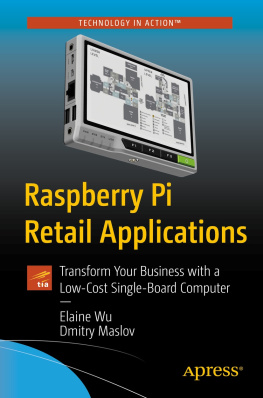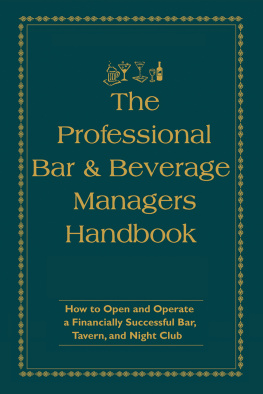How to Open & Operate
a Financially Successful
Retail
Business
By Janet Engle

A few years back we lost our beloved pet dog Bear, who was not only our best and dearest friend but also the Vice President of Sunshine here at Atlantic Publishing. He did not receive a salary but worked tirelessly 24 hours a day to please his parents.
Bear was a rescue dog who turned around and showered myself, my wife, Sherri, his grandparents Jean, Bob, and Nancy, and every person and animal he met (well, maybe not rabbits) with friendship and love. He made a lot of people smile every day.
We wanted you to know a portion of the profits of this book will be donated in Bears memory to local animal shelters, parks, conservation organizations, and other individuals and nonprofit organizations in need of assistance.
Douglas and Sherri Brown
PS: We have since adopted two more rescue dogs: first Scout, and the following year, Ginger. They were both mixed golden retrievers who needed a home.
Want to help animals and the world? Here are a dozen easy suggestions you and your family can implement today:
- Adopt and rescue a pet from a local shelter.
- Support local and no-kill animal shelters.
- Plant a tree to honor someone you love.
- Be a developer put up some birdhouses.
- Buy live, potted Christmas trees and replant them.
- Make sure you spend time with your animals each day.
- Save natural resources by recycling and buying recycled products.
- Drink tap water, or filter your own water at home.
- Whenever possible, limit your use of or do not use pesticides.
- If you eat seafood, make sustainable choices.
- Support your local farmers market.
- Get outside. Visit a park, volunteer, walk your dog, or ride your bike.
Five years ago, Atlantic Publishing signed the Green Press Initiative. These guidelines promote environmentally friendly practices, such as using recycled stock and vegetable-based inks, avoiding waste, choosing energy-efficient resources, and promoting a no-pulping policy. We now use 100-percent recycled stock on all our books. The results: in one year, switching to post-consumer recycled stock saved 24 mature trees, 5,000 gallons of water, the equivalent of the total energy used for one home in a year, and the equivalent of the greenhouse gases from one car driven for a year.
Author Dedication & Biography
First, to my husband David, who wrestled babies, folded laundry and washed dishes so I could have more work time. To Alex for keeping his little brother entertained and being understanding when dinner was late. To Danny, who reminded me when it was time to turn off the computer.
To Kelly, for her support and encouragement. No one should have to put up with having me for a little sister. Sorry about that makeup incident.
To Kammi and Brian for coming through for me when it was crunch time.
Finally, to Scott for teaching me what magic words could hold.
Janet Engle has over ten years of experience working in the retail industry. Along with operating her own online specialty store, www.oddmountain.com , she helps other businesses create marketing materials and strategies.
Janets first novel, The Synergy of Avintia , was published in 2002. She has also written numerous nonfiction articles about advertising, technology, and time management for business owners.
As the editor of the International Data Rescue News , Janet works with scientists and activists across the world to save historical environmental records. For more information about data rescue, please visit www.iedro.org .
Contents
Foreword

By Dan Butler
The retail environment today is more competitive than ever, and the dynamic evolution of specialty retailing, the resurgence of department store retailing, and the continual growth of the online e-tailing makes this one of the most exciting times to be engaged in the retail environment. How to Open and Operate a Financially Successful Retail Business shares great insights into the many different aspects of retailing in a straightforward and well-organized approach that speaks to the diverse demands of retailing in todays economy. Like the National Retail Federation (NRF), this book covers a broad range of topics, all of which are important to a retail business owner.
The NRF is the worlds largest and most influential retail trade association, working to provide thought leadership throughout the retail industry. The NRF encourages you to use this book to help further your understanding of retailing and to help guide you on your continued journey. It is our hope that your study of the retail industry reveals diversified challenges and opportunities for a fulfilling career that can last a lifetime. We encourage you to visit the NRF Web site at www.nrf.com. The NRF Pressroom and Bookstore are areas that may also assist you in your search for knowledge about the world of retailing.
Dan Butler joined NRF in December 2000. He is responsible for committee meetings of top retail executives, developing conference programming, and ensuring that NRF members are well-informed on the cutting-edge of retail industry issues. Butler serves as the NRF liaison to several member committees, including the Human Resources Executives Council and Council on Diversity. He also coordinates the yearly retail HR Executives Summit.
Butler is a retail veteran with over 26 years of store-line experience in retail management, merchandising, and human resources. His career includes a history of exceeding sales plans, reducing associate turnover, and achieving inventory control objectives.
Prior to joining NRF, Butler was Vice President and Store Manager at Macys department store in Miami, Florida. While at Macys he managed a store with $48 million in annual sales volume and successfully reduced both internal and external shrinkage. Before joining Macys in 1998, Butler spent 11 years with Hechts department stores, first as divisional sales manager and then as store manager for stores in central Pennsylvania. He was named Divisional Sales Manager of the Year twice while at Hechts.
Daniel Butler
Vice President Retail Operations
National Retail Federation
Chapter 1: The History of Retailing
T he beginning of the retail industry is intimately tied to the history of mankind. As communication between different clans developed, trade was one of the first orders of business. This farmer had a surplus of wheat, that one had extra wool. Both would benefit through an exchange of goods.
The early marketplace became more efficient with the development of money. Early producers no longer had to find the right chain of people to exchange goods with they could just sell their surplus then buy what they needed.
Primitive trade revolved around seasonal harvests, but eventually permanent shops were established. Producers began raising extra livestock, weaving more material than their family used, or growing surplus crops to sell at the market. The retail culture was born.
In the late 1600s, Hudsons Bay Company (HBC) established the worlds first department store. HBC was also the first commercial corporation in North America. Dealing mainly in furs, tools, and hunting equipment, HBC was a far cry from the department stores of today.







_fmt.jpeg)

